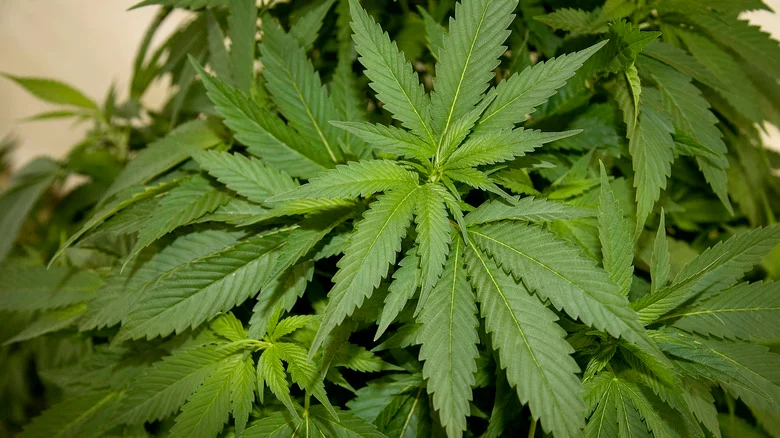Why Experts Say The Federal Legalization Of Cannabis Could Mean…

People have been using cannabis as medicine for thousands of years across many cultures, beginning with Traditional Chinese Medicine (TCM) in 2800 B.C. (via The University of Sydney). Historically, Americans used cannabis to ease symptoms of numerous illnesses, including stomachaches, migraines, insomnia, and inflammation (per History). Although federal law continues to prohibit cannabis, 37 states have legalized medical marijuana, and 19 allow recreational use (via DISA).
While these state-level changes have swept the U.S., a federal decision on legalizing cannabis has not yet been reached. The Alcohol Policy Information System (APIS) explains that in 1970, the Controlled Substances Act made cannabis a Schedule I substance. This categorization means that the potential medical benefits of cannabis are not considered. Furthermore, it places it in a class of drugs with the highest potential for abuse, along with narcotics like heroin and opium. However, modern research, including a 2014 study published in the Hawai'i Journal of Medicine & Public Health, shows that cannabis may have benefits for both mental and physical health.
In April 2022, the House of Representatives passed the Marijuana Opportunity Reinvestment and Expungement Act (MORE) for a second time (per the Library of Congress). Now, according to The World, another bill called the Cannabis Administration and Opportunity Act (CAOA) seeks to remove cannabis from the federal list of controlled substances. Full Congressional approval of either bill could significantly change the lives of millions in the United States.
Public health benefits of federal cannabis legalization

The Alexander Campbell King Law Library explains that during the late 1800s, cannabis was sold over the counter and available in many medicinal products. Today, some policymakers argue that marijuana is much more potent and see federal legalization as a way to cap THC potency levels. "Higher levels of THC induce more impairment and more health risks," Rosalie Liccardo Pacula, Elizabeth Garrett Chair in Health Policy, Economics & Law at the USC Price School of Public Policy, tells Healthline.
Some are worried patients who need medical cannabis could suffer from potency caps. Liz Rogan, the founder of The Cannabis Business Council of Santa Barbara County, thinks federal THC potency caps could affect patients living with cancer or chronic pain. These medical conditions often require high doses of THC to be effective. "Is it fair to that person to have to go to the [cannabis] dispensary every day and buy more often because they can't buy the products in a concentrated form?" Rogan asked via Healthline.
With or without THC potency caps, offering cannabis legally across the country will help consumers purchase safe cannabis products cultivated in licensed facilities. Marijuana purchased illicitly poses health risks that legal cannabis purchased at regulated dispensaries does not. With federal regulations in place, all Americans could access regulated cannabis products, according to a 2019 study published in Environmental Health Perspectives — and not laced with deadly drugs like fentanyl, a common threat with black market marijuana.
Like this project
Posted Nov 12, 2024
While state-level changes to cannabis use have swept the U.S., a federal decision on legalizing the drug has not yet been reached.
Likes
0
Views
7





